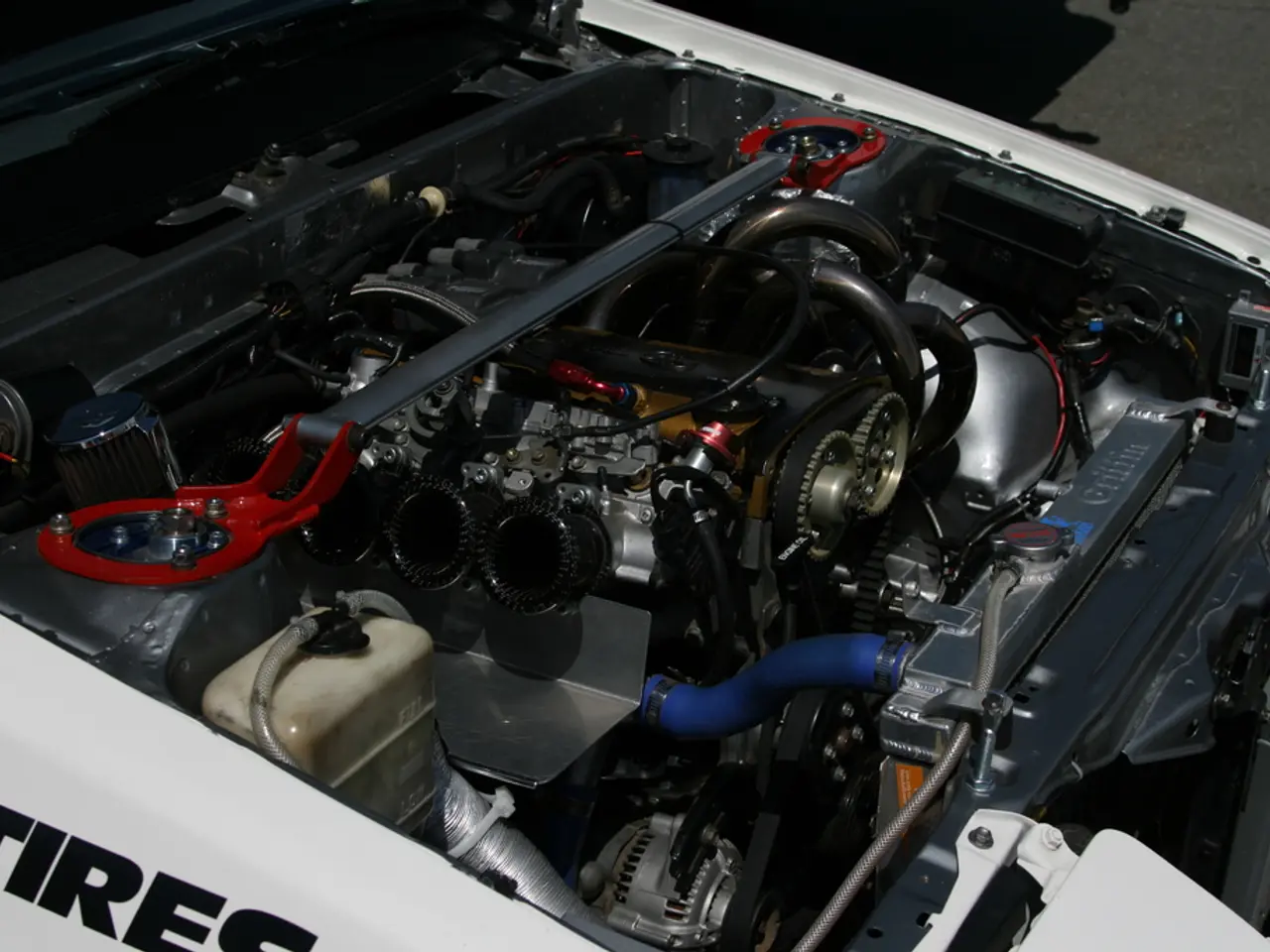Automotive industry voices concern over potential job losses: proposed ban on gas burners could affect 20,000 workers
The European Union's ambitious plan to ban new cars with internal combustion engines (ICE) by 2035 has sparked a heated debate, with concerns over potential job losses and economic strain in the auto industry. A study by Transport & Environment (T&E) estimates that up to 1 million jobs could be at risk, while also highlighting the potential for new employment opportunities in electric vehicle (EV) supply chains [1].
The EU aims to reduce emissions from cars almost to zero by 2055 [2]. However, the transition to EVs is not without challenges. Some companies find the timelines for the EU's ban on ICE difficult to implement in practice [3]. The CEO of auto supplier Mahle, Arnd Franz, has emphasised that around 28,000 jobs in his company alone are threatened by the ban [4].
Mahle's workforce is particularly at risk due to the nature of ICE vehicles. An ICE vehicle has approximately four times as many components as an EV, and only a fifth of the previous personnel is required for producing EVs [5]. This significant factor contributes to the potential job losses.
However, the transition to EVs also presents opportunities for job creation, especially in battery manufacturing and charging infrastructure. T&E estimates that over 220,000 new jobs could be created by 2035, helping to offset traditional auto manufacturing job losses [1].
Automakers have expressed concerns about the ban, viewing it as a structural crisis that could threaten millions of jobs [3]. Some industry suppliers, such as Mahle, have called for a revision of the ban to allow advanced ICE technologies beyond 2035 [4]. The CEO of Mahle has also advocated for technological openness, allowing consumers to make their own decisions about the technology they use [6].
Many citizens and companies consider the EU's ban on ICE to be rushed and unrealistic [7]. Companies in the automotive industry are sending a clear warning to Brussels, stating that the ban could lead to an economic collapse [8]. If the ban on ICE is implemented, experts estimate that 120,000 to 160,000 jobs could be cut across the industry, including suppliers, dealers, and repair shops [9]. One automaker has highlighted the potential loss of 20,000 or more jobs due to the ban [10].
In summary, while strict enforcement of the 2035 ICE ban could risk significant job losses in Europe, effective industrial strategies and investments in EV supply chains may mitigate this impact and create new employment opportunities [1][3][4]. The EU's plans for banning ICE are described as ambitious, and the debate continues on striking a balance between environmental targets and economic sustainability in the auto industry.
[1] https://www.transportenvironment.org/press/eu-must-prepare-for-ev-transition-to-avoid-1-million-job-losses-and-90-billion-economic-collapse [2] https://www.euractiv.com/section/climate-environment/news/eu-aims-to-reduce-car-emissions-to-almost-zero-by-2055/ [3] https://www.autonews.eu/automakers-amp-suppliers/eu-scrutinizes-its-2035-ice-ban-plan-amid-industry-concerns [4] https://www.reuters.com/business/autos-transportation/eu-scrutinizes-its-2035-ice-ban-plan-amid-industry-concerns-2021-09-01/ [5] https://www.autocar.co.uk/business/industry/eu-scrutinises-its-2035-ice-ban-plan-amid-industry-concerns [6] https://www.reuters.com/business/autos-transportation/eu-scrutinizes-its-2035-ice-ban-plan-amid-industry-concerns-2021-09-01/ [7] https://www.autonews.eu/automakers-amp-suppliers/eu-scrutinizes-its-2035-ice-ban-plan-amid-industry-concerns [8] https://www.autonews.eu/automakers-amp-suppliers/eu-scrutinizes-its-2035-ice-ban-plan-amid-industry-concerns [9] https://www.autonews.eu/automakers-amp-suppliers/eu-scrutinizes-its-2035-ice-ban-plan-amid-industry-concerns [10] https://www.autonews.eu/automakers-amp-suppliers/eu-scrutinizes-its-2035-ice-ban-plan-amid-industry-concerns
The CEO of Mahle, a major auto supplier, has advocated for technological openness, enabling consumers to choose the technology they use, recognizing the potential job losses within his company due to the EU's ban on new ICE vehicles. The study by Transport & Environment (T&E) predicts that over 220,000 new jobs could be created by 2035 in battery manufacturing and charging infrastructure, mitigating traditional auto manufacturing job losses.




